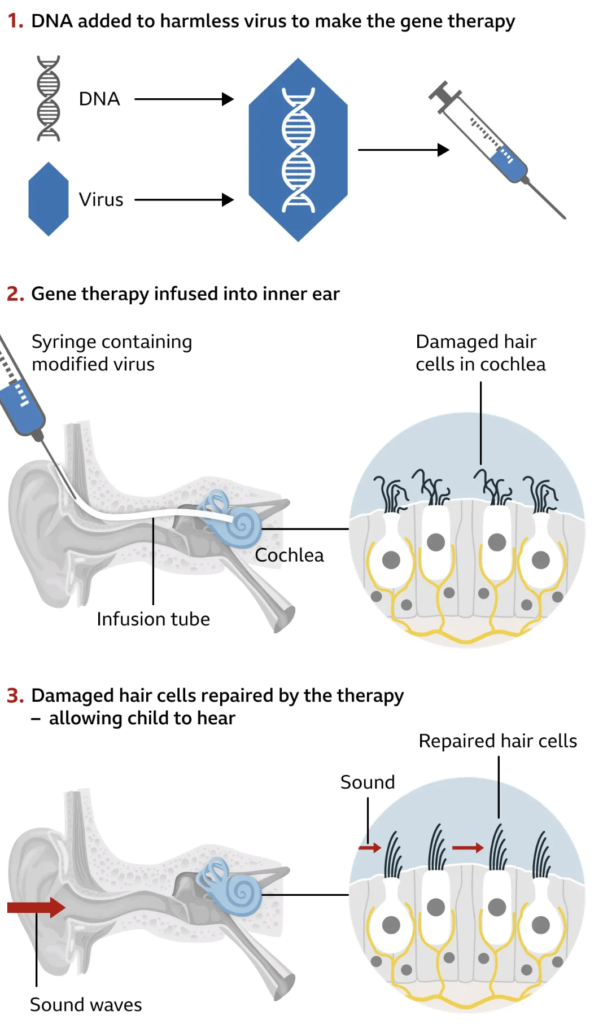Breakthrough Gene Therapy Offers Hope for Inherited Deafness
In a significant stride forward, gene therapy has emerged as a beacon of hope for those grappling with inherited deafness. Opal Sandy, a young girl from Oxfordshire born deaf, has recently achieved a remarkable milestone: hearing unaided in the treated ear, thanks to this groundbreaking treatment.
Opal’s Journey: From Deafness to Hearing
Opal underwent the pioneering gene therapy shortly before her first birthday. Within a mere six months, she began to perceive even the softest sounds and started vocalising words like “Mama,” “Dada,” and “uh-oh.” This infusion directly into her ear targeted the faulty DNA responsible for her specific type of inherited deafness.
More than half of hearing loss cases in children have genetic causes. Opal’s is due to DNA she inherited, meaning she was born deaf. Shortly before her first birthday, doctors at Addenbrookes Hospital in Cambridge, gave her the pioneering treatment. And now six months on, she can hear sounds as soft as a whisper and is starting to talk. Her parents, Jo and James, faced the daunting decision to allow Opal to be the first recipient of this treatment, produced by Regeneron. Yet, driven by the prospect of transforming their daughter’s life, they embraced the opportunity wholeheartedly. Hear Opal’s story here.
Opal’s success story illuminates the potential of gene therapy in tackling various forms of profound hearing loss. Unlike traditional interventions like hearing aids or cochlear implants, which amplify sound, gene therapy targets the root cause by delivering a functional copy of the Otof gene into affected cells.
How Hearing Gene Therapy Works

A Global Trial of Promising Prospects
Participating in a trial spanning the UK, US, and Spain, supported by NIHR Cambridge Clinical Research Facility and NIHR Cambridge Biomedical Research Centre, Opal embodies hope for countless others with similar conditions. Parallel efforts are underway in countries like China, investigating treatments for the Otof gene mutation, mirroring Opal’s journey.
The trial’s chief investigator and ear surgeon at Cambridge University Hospitals NHS Foundation Trust, Professor Manohar Bance said “Children with a variation in the Otof gene are born with severe to profound hearing loss, but they often pass the new-born hearing screening so everyone thinks they can hear. The hair cells are working, but they are not talking to the nerve.”
The ramifications of this breakthrough extend far beyond Opal’s individual journey. Researchers foresee broader applications for gene therapy in addressing genetic causes of hearing loss in children.
 Hearing Hearing Tests for Children
Hearing Hearing Tests for Children
At Harley Street Hearing we carry out hearing tests for children if you have concerns for your child’s hearing and want to see what options are available now please call us on 020 7486 1053 or complete the form below
Was this article interesting? If so why not read some of our others:












